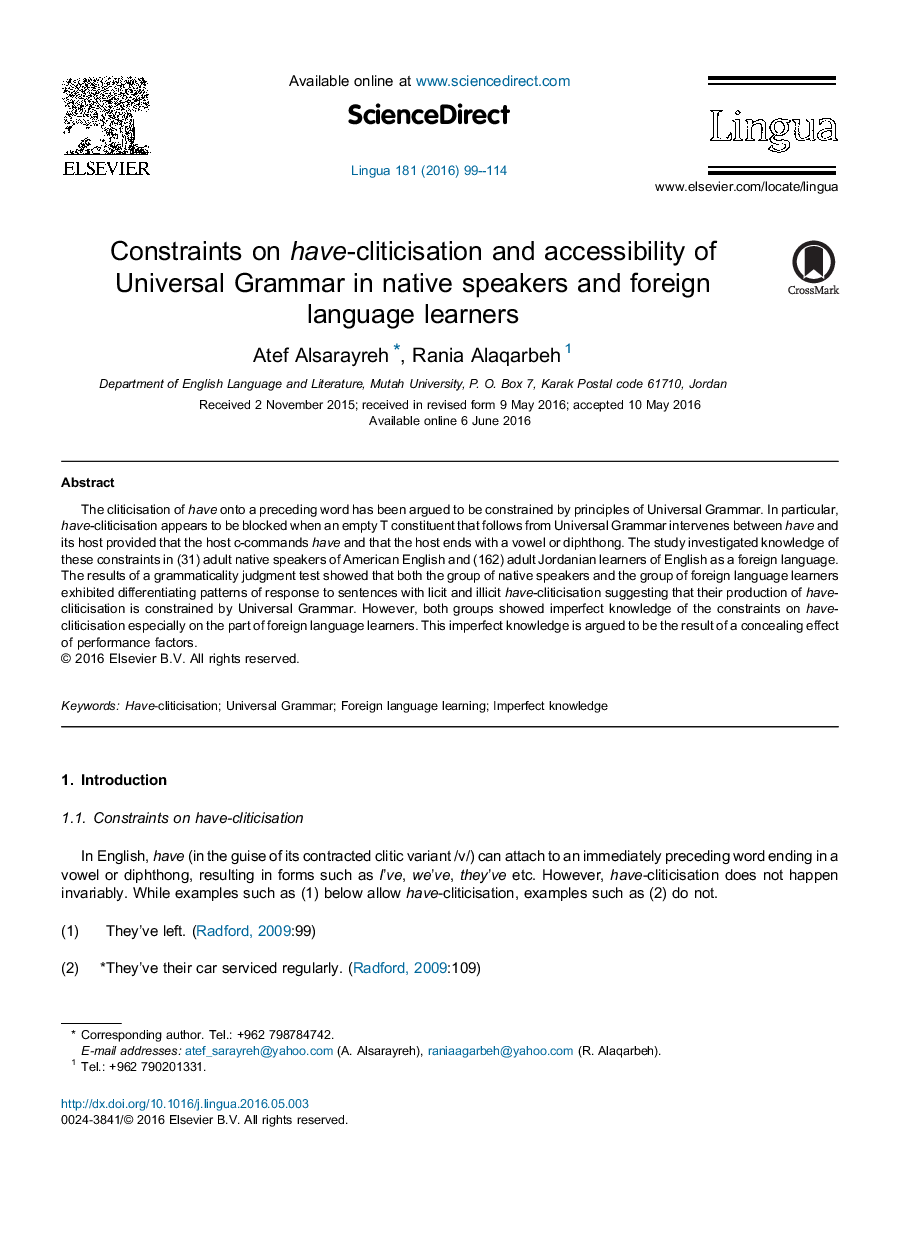| Article ID | Journal | Published Year | Pages | File Type |
|---|---|---|---|---|
| 5043049 | Lingua | 2016 | 16 Pages |
â¢Universal Grammar can explain the constraints on have-cliticisation.â¢Universal Grammar is accessible to foreign language learners.â¢Have-cliticisation does not need to be taught.â¢Knowledge of Universal Grammar might by disturbed by performance factors.
The cliticisation of have onto a preceding word has been argued to be constrained by principles of Universal Grammar. In particular, have-cliticisation appears to be blocked when an empty T constituent that follows from Universal Grammar intervenes between have and its host provided that the host c-commands have and that the host ends with a vowel or diphthong. The study investigated knowledge of these constraints in (31) adult native speakers of American English and (162) adult Jordanian learners of English as a foreign language. The results of a grammaticality judgment test showed that both the group of native speakers and the group of foreign language learners exhibited differentiating patterns of response to sentences with licit and illicit have-cliticisation suggesting that their production of have-cliticisation is constrained by Universal Grammar. However, both groups showed imperfect knowledge of the constraints on have-cliticisation especially on the part of foreign language learners. This imperfect knowledge is argued to be the result of a concealing effect of performance factors.
